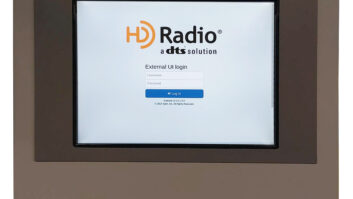Renewal cycle begins in 12 months
Apr 1, 2002 12:00 PM, By Harry Martin
The next license renewal cycle will begin April 1, 2003, with preparations for license renewals for stations in the District of Columbia, Maryland, Virginia, and West Virginia. (The deadline for filing DC/MD/VA/WV renewal applications is actually June 1, but the pre-filing preparations, including the broadcast of pre-filing announcements, cranks up two months before.)
Now is the time to begin making preparations for the renewal process. While the Commission has streamlined license renewals over past years, these changes focus more attention on the regulations that are left. Further, while the yes/no questions about matters such as the public file and quarterly issues/programs lists appear routine, care must be taken that the answers given are correct.
Accordingly, at this time, station managers should check their stations’ local public inspection files to make sure that they are complete and up-to-date. Ensure that basic documents such as licenses, ownership reports and information as to signal contours are in the public file. Be particularly aware of record-keeping requirements relating to political broadcasting.
Another related matter is the quarterly issues/programs lists that each radio station must prepare and place in the public inspection file each April 10, July 10, October 10 and January 10. Those reports should list at least five issues of importance in the community and provide a description of the programs aired by the station regarding those issues. The information in the report should include the title, time, date, duration and a brief description of each issue-responsive program.
The renewal application form will request information about compliance with these requirements. Stations not able to respond affirmatively will face further inquiries from the FCC.
Phone call equals fine
As a general rule, most broadcasters operate under the assumption that callers to the studio realize their call may be broadcast. However, that assumption may not always be valid, and a mistake can result in a fine as in the recent case of an FM station. A caller to the studio believed that she was calling the father of an acquaintance. The on-air personality thought the call was a prank and played along. The conversation was taped and rebroadcast. The caller complained to the FCC.
In response, the licensee claimed that its announcer told the caller twice that she had reached a radio station, but it is not clear exactly how or when in the conversation the announcer made that disclosure.
The FCC fined the station $4,000 for violating Section 73.1206 of the rules, which prohibits the recording and broadcast of telephone conversations without the caller’s consent. The licensee argued that this situation fell within the exception, explicitly included in the rule, which permits such taping and broadcast when the caller may be presumed to have consented. According to the rule, such consent may be presumed when the caller originates the call and �it is obvious that [the call] is in connection with a program in which the station customarily broadcasts telephone conversations.�
FM license revocation
The FCC is seeking to revoke four FM broadcast licenses and several associated translator licenses held by a broadcaster who refused to obey FCC orders.
The broadcaster operates translator stations that apparently do not qualify as �fill-in� facilities because they are outside the main stations’ 1mV/m contours. The Commission refused to grant renewals for the translators unless the licensee sold them to an unrelated entity in order to bring them into compliance. The licensee did file for approval of such assignments, and approvals were granted, but the licensee did not consummate the transfers. The Commission then declared that, because the renewals had been conditioned on sale of the stations, and because the sale had not occurred, the licenses were deemed to have expired.
The FCC now has fined the broadcaster $140,000 for illegally operating the translators. Based on the licensee’s continuing disregard for the rules, all four full-service and (even the remaining and legitimate) translator licenses were set for a revocation hearing.
Martin is an attorney with Fletcher, Heald & Hildreth, PLC., Arlington, VA. E-mail[email protected].
Dateline:
Quarterly issues/programs lists must be placed in stations’ public files on April 10 and again on July 10.
The deadline for filing comments on the FCC’s newly-proposed EEO rules was extended to April 15.












